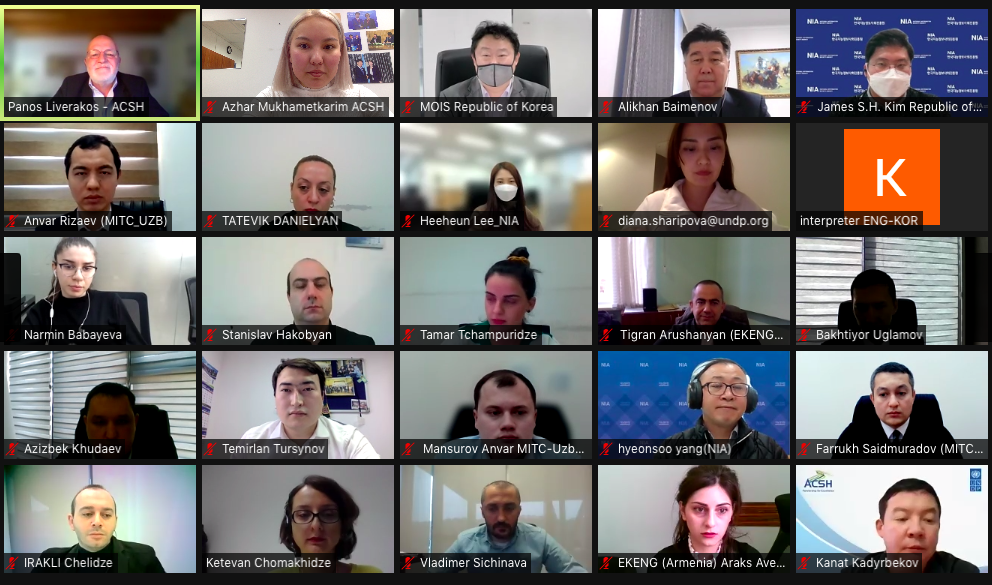The Government of the Republic of Korea and the Astana Civil Service Hub launched an online course on Digital Government Development for civil servants of the countries of Central Asia and the Caucasus

The online course "Digital Government Policy and Best Practices of the Republic of Korea" was developed as part of a joint three-year project of the Government of the Republic of Korea, UNDP and the Astana Civil Service Hub.
During the course, over 40 representatives of government agencies from the countries of Central Asia and the Caucasus responsible for digitalization will have the opportunity to explore Korea's best practices in digital government development, including strategy, policies, achievements, innovative approaches and the latest technologies. As part of the course, participants will also learn effective methods for developing and implementing digital government projects, managing cybersecurity, moving to proactive services, storing data and documents in the G-cloud, and much more.
Opening the online course, the Chairman of the Steering Committee of the Astana Civil Service Hub Mr. Alikhan Baimenov noted that “digitalization today is a vital necessity, as it was once again confirmed during the pandemic”. He also stressed that “digital transformation and new technologies, when they are used effectively, will help increase the level of citizens' confidence and trust in government decisions, which is not only a social value, but also important administrative capital".
In turn, the Director General of the Digital Government Bureau of the Republic of Korea Mr. Suh Boram, shared some of Korea's innovative solutions and noted the importance of cooperation and exchange of experience with the public and private sectors in order to turn this crisis into a new opportunity for great change.
During the event, the Director of the Digital Government Cooperation Division, Ministry of Internal Affairs and Security (MOIS) Mr. Sungjoo Son and the senior manager of the National Information Society Agency (NIA) of the Republic of Korea Mr. James Kim spoke about digital government policy, and they presented best practices for managing and analyzing Big Data.In addition, a brief presentation was delivered by Ms. Nami Kim, Assistant Director of the Digital Government Cooperation Division, MOIS, providing important highlights of the online course, in particular how to develop theProject Concept Paper (PCP) for a successful digital project.
In general, the course is designed as a self-paced training course on the “Google Classroom” platform that allows the participants to follow it in their own time, without interference to their workflow. It consists of eight modules and includes video lectures by leading Korean practitioners, as well as presentations and usefulreference materials.
The uniqueness of the online course is that participants will have the opportunity to develop a concept for adigital project.The project concept papers that qualify may apply forfunding from the Korean Government to proceed with their implementation. The course programme can be found here.
The project also includes a number of other activities carried out over three years. It envisions to hold a series of workshops to improve the skills of civil servants, as well as to organize study visits to government agencies of the Republic of Korea.
_________
The project is designed for three years and will be implemented by ACSH and UNDP in partnership with MOIS and NIAin the countries of Central Asia (Kazakhstan, Kyrgyzstan, Tajikistan and Uzbekistan) and Caucasus (Azerbaijan, Armenia, Georgia).The project is financed by the Government of the Republic of Korea.



